SUMMARY
This is AI generated summarization, which may have errors. For context, always refer to the full article.
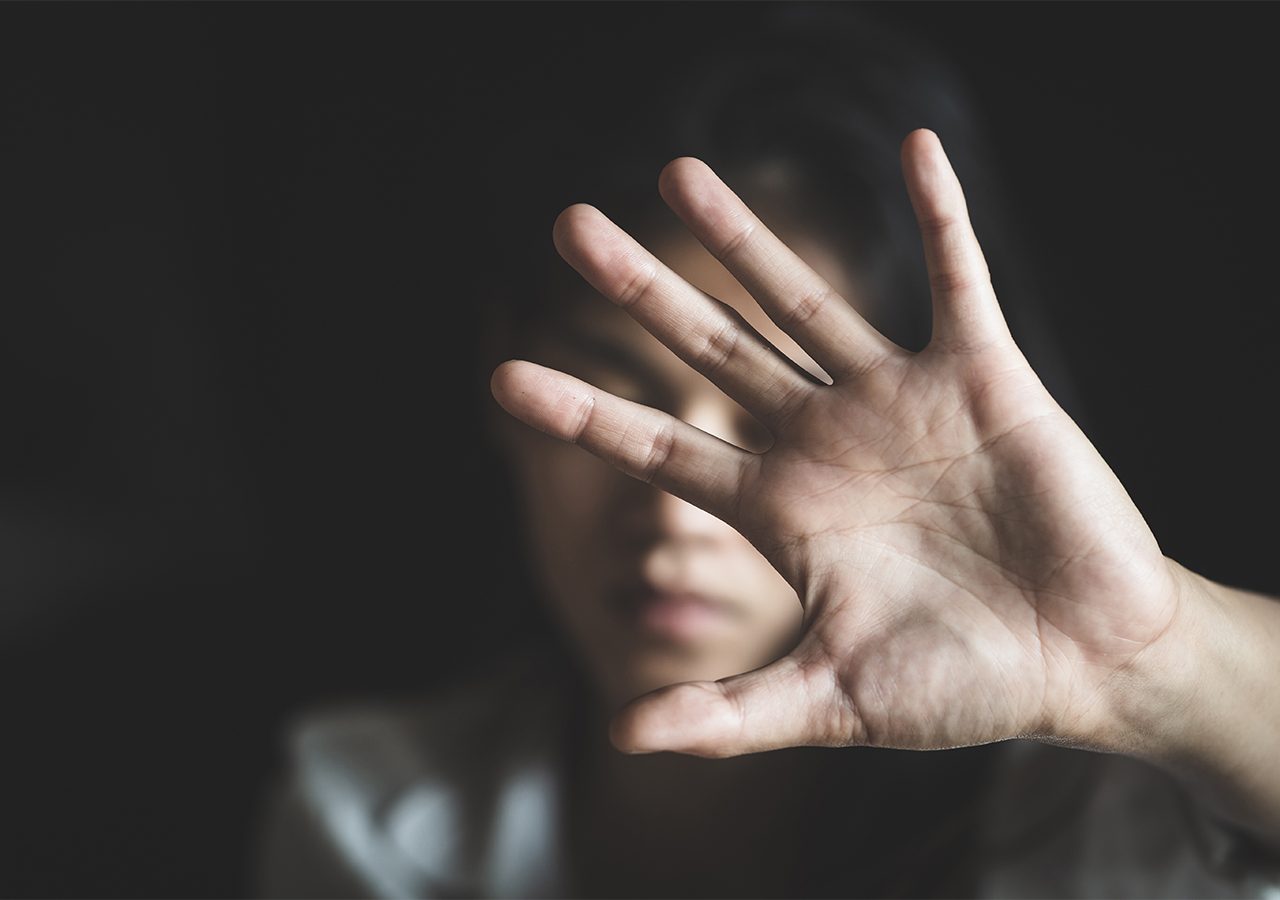
MANILA, Philippines – The Supreme Court’s (SC) dismissal of rape and acts of lasciviousness charges against actor Vhong Navarro should not dissuade rape survivors from filing cases against their perpetrators, a women’s rights lawyer said.
In a decision released on Monday, March 13, the SC reversed the July 2022 decision and September 2022 resolution of the Court of Appeals (CA) directing the Department of Justice (DOJ) to prosecute Navarro for the charges.
The SC also pointed to the “manifestly inconsistent and highly deficient, doubtful, and unclear accounts” of model Deniece Cornejo, who alleged that Navarro raped her in 2014.
But Jelen Paclarin, executive director of nongovernmental organization Women’s Legal and Human Rights Bureau (WLB), pointed out that the issue the SC resolved was not on the rape and misconceptions of the victim, but “mainly focused on technicalities.”
The issue was “whether the CA erred in finding that the DOJ committed grave abuse of discretion in sustaining the findings of [the prosecutor] and dismissing the third complaint against Navarro for lack of probable cause.”
“As a feminist, the society and the legal system must not use the Navarro vs Cornejo case to automatically correlate rape victims inconsistent statements with this case. Therefore, the case should not set as precedent to future rape cases and must not dissuade victims from reporting the violation committed against them,” Paclarin told Rappler in an email.
Cornejo had filed three separate complaints against Navarro with different accounts on whether rape or attempted rape occurred on January 17, 2014, and January 22, 2014 – two nights when Cornejo and Navarro were together in her condominium unit in Taguig.
Cornejo said that she had not mentioned in the first complaint that rape happened on the first night because she was “very ashamed” to admit that Navarro had violated her twice, and she had signed the first complaint “without completely reading and fully understanding it because she was then feeling confused and traumatized,” according to the SC.
She also attributed inconsistencies in her first and second complaints to a miscommunication with her lawyer.
In Navarro’s defense, he said that he was attacked and was a victim of extortion by Cornejo, businessman Cedric Lee, and their other companions. Cornejo’s camp said Navarro sustained injuries after Lee and company caught him attempting to rape Cornejo.
In September 2017, Prosecutor General Severino Gaña Jr. dismissed the complaints of rape and attempted rape for lack of probable cause. Gaña said that Cornejo’s explanation for her inconsistencies did “not hold water.”
As it was elevated to the CA, the CA granted Cornejo’s petition for certiorari, and faulted the DOJ with error in denying her petition for review on the ground that her statements were inconsistent and incredible. It added that issues on credibility should be addressed during the trial proper, and not during the preliminary investigation.
Still, the SC had disagreed with the CA, and upheld the previous rulings in favor of Navarro. The SC said that the inconsistent allegations were “too glaring and manifest to be missed.”
While the SC ruled against the “glaring” inconsistencies of Cornejo, lawyer Clara Rita Padilla, executive director of EnGendeRights, highlighted the long line of SC cases where the SC ruled that minor inconsistencies did not affect the credibility of the complainant.
One is People v. Corpuz, where some inconsistencies by the rape survivor even “strengthened” her credibility because they discounted the possibility of the statements being rehearsed.
In People v. Divinagracia, the court ruled that inconsistencies by the victims in their testimonies may be expected as they were not accustomed to public trial, and were only eight and nine years old at the time of their father’s sexual abuse.
In dismissing Cornejo’s allegations, Prosecutor Gaña said: “Common human experience dictates that a narration given close to the incident usually contains more details than one that is given later. This is because in the former, the events or details are still fresh in the narrator’s mind, while the passage of time will make a person forget details.”
Meanwhile, some studies have found that trauma from assault often make it difficult for victims to clearly recall the incidents. “All too often, law enforcement professionals and others have been suspicious of sexual assault victims when they provide information that is disorganized or inconsistent…. Rather than being a cause for suspicion, however, such behavior should be seen as the natural result of trauma,” said an August 2020 report by the End Violence Against Women International organization.
“Therefore, law enforcement professionals can greatly benefit their investigative skills, not only by keeping in mind the effects of trauma on memory, but also realizing that postponing an interview may sometimes help victims to more clearly think, remember, and communicate,” added EVAWI.
Paclarin highlighted the WLB’s belief that an accusation for rape is not easy to make. “It takes tremendous courage for a women to collect her wounded dignity, her sullied clothing, her bruised body, and report the rape to the authorities.”
Padilla said, “Court decisions and resolutions by prosecutors that undermine the credibility of rape survivors are detrimental to the fight of rape survivors for justice and do not further the efforts to eliminate gender-based violence.”
“All women and girls and those who want their daughter, sister, niece, wife, and friends to be safe and free from sexual assaults should join hands to bust rape myths and this starts with believing the complainants, bolstering prosecution, making DNA labs accessible throughout the country, making rape perpetrators accountable with guilty verdicts, and condemning all sexual violence,” added Padilla. – Rappler.com
Add a comment
How does this make you feel?






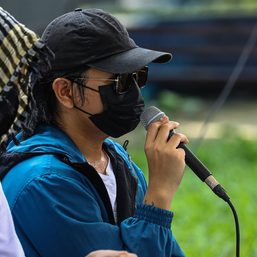
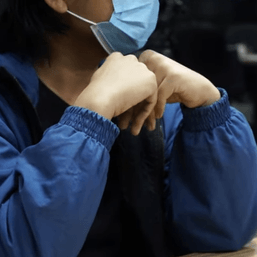


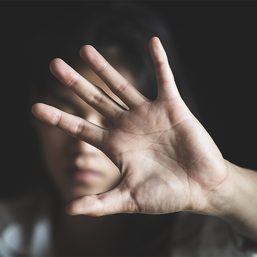

![[OPINION] The myth of the individual narrative in the struggle against sexual violence](https://www.rappler.com/tachyon/2024/02/ispeak-struggle-for-safe-spaces-feb-7-2024.jpg?resize=257%2C257&crop=274px%2C0px%2C720px%2C720px)
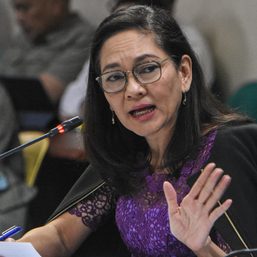
![[OPINION] Data is crucial to preventing gender-based violence](https://www.rappler.com/tachyon/2023/11/TL-ogbv-nov-28-2023.jpg?resize=257%2C257&crop=271px%2C0px%2C720px%2C720px)

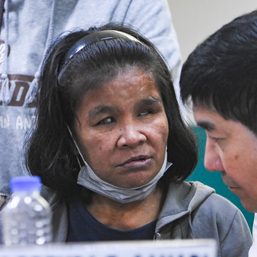
![[Free to Disagree] Arrest Quiboloy!](https://www.rappler.com/tachyon/2024/03/Free-to-disagree-arrest-quiboloy-March-11-2024-1.jpg?resize=257%2C257&crop_strategy=attention)
![[OPINION] Unpaid care work by women is a public concern](https://www.rappler.com/tachyon/2024/07/20240725-unpaid-care-work-public-concern.jpg?resize=257%2C257&crop_strategy=attention)
![[DECODED] The Philippines and Brazil have a lot in common. Online toxicity is one.](https://www.rappler.com/tachyon/2024/07/misogyny-tech-carousel-revised-decoded-july-2024.jpg?resize=257%2C257&crop_strategy=attention)

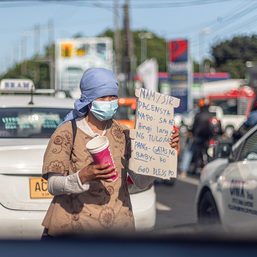
![[OPINION] Why women seek divorce](https://www.rappler.com/tachyon/2024/06/TL-women-seeking-divorce-june-14-2024.jpg?resize=257%2C257&crop_strategy=attention)
There are no comments yet. Add your comment to start the conversation.